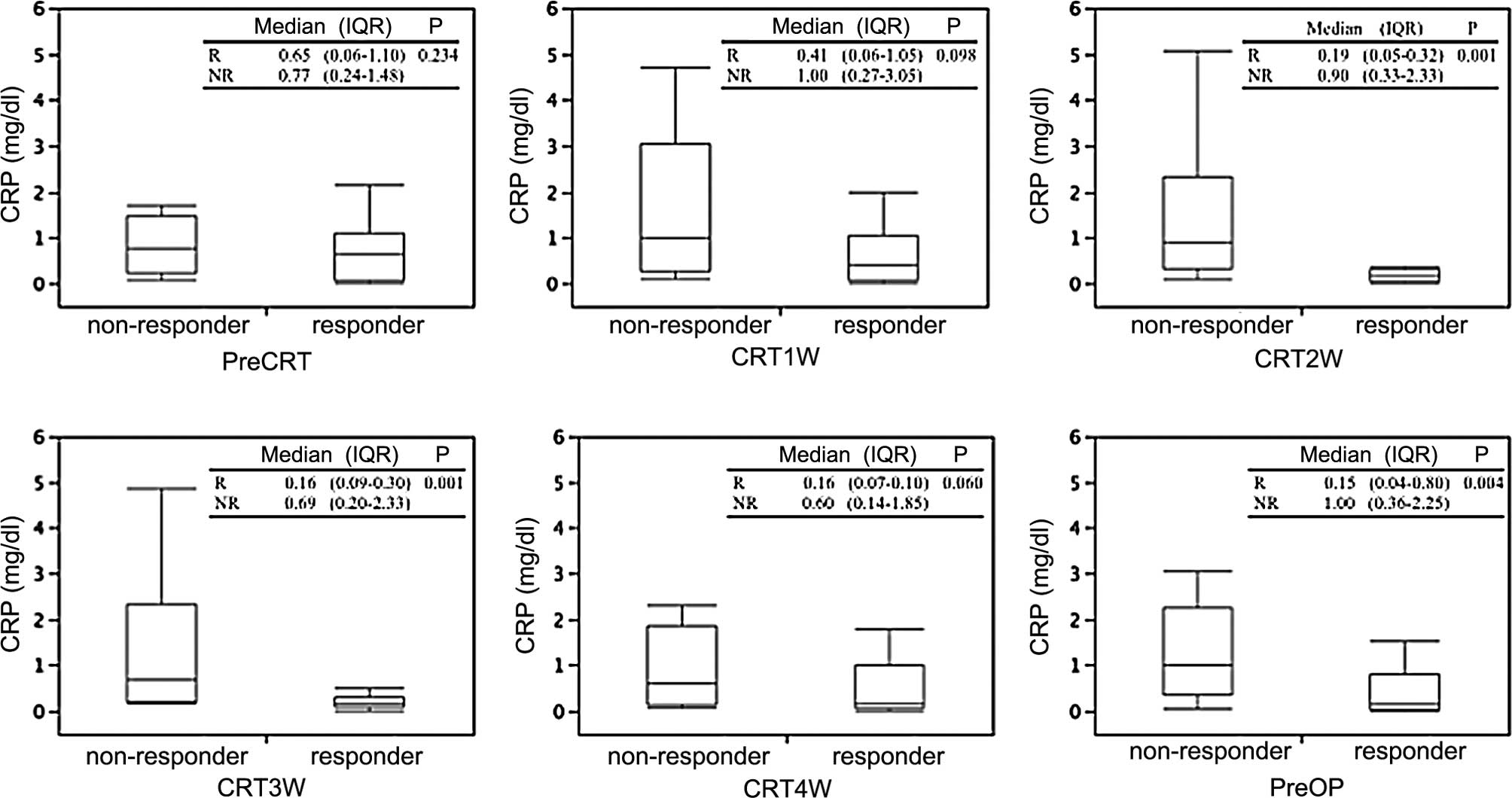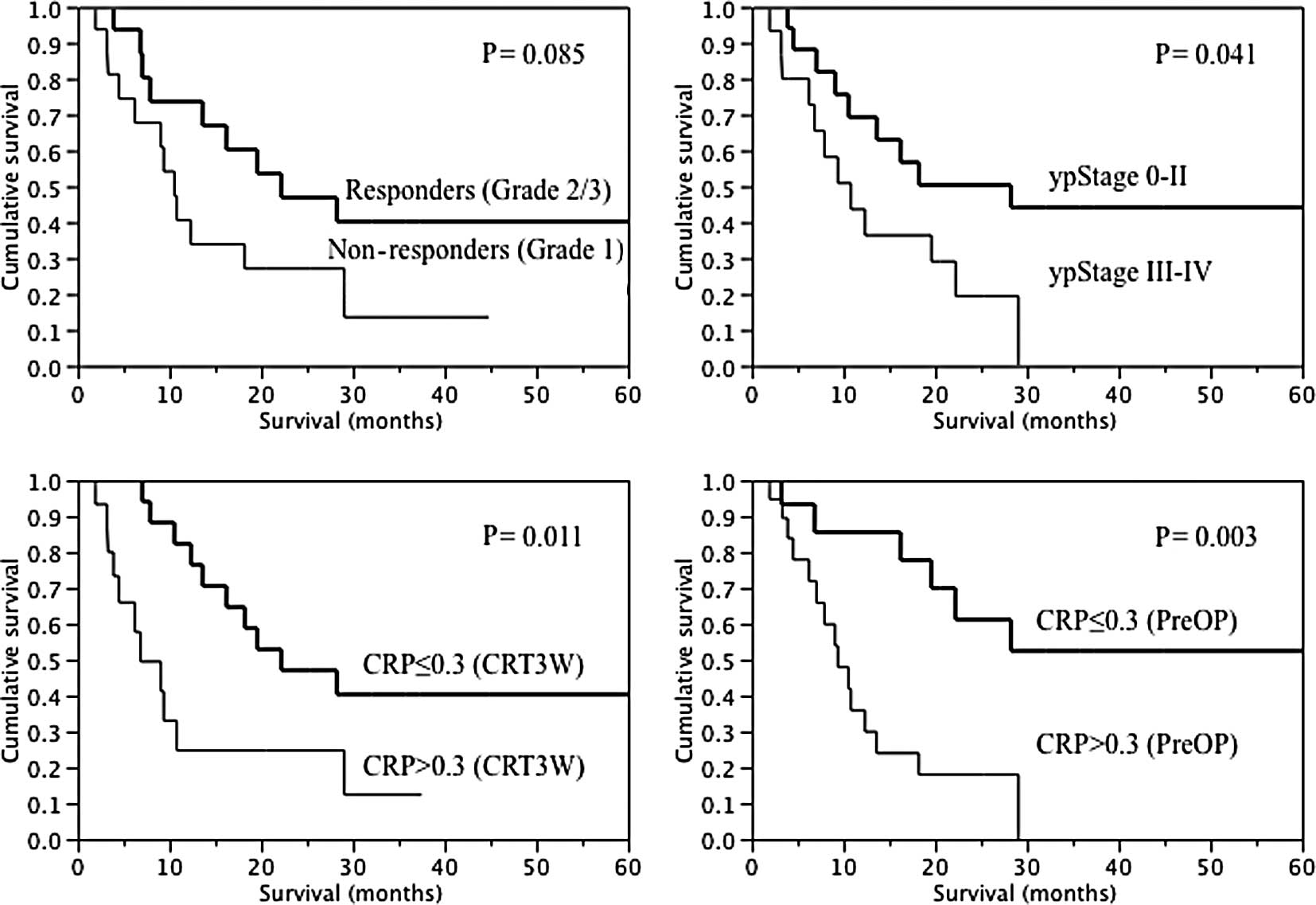Spandidos Publications style
Fujiwara H, Shiozaki A, Furutani A, Yoneda M, Kubota T, Komatsu S, Ichikawa D, Okamoto K, Murayama Y, Kuriu Y, Kuriu Y, et al: Time course of serum C-reactive protein levels during induction chemoradiotherapy and its correlation with treatment
response and survival in patients with advanced esophageal squamous cell carcinoma. Mol Clin Oncol 1: 558-564, 2013.
APA
Fujiwara, H., Shiozaki, A., Furutani, A., Yoneda, M., Kubota, T., Komatsu, S. ... Otsuji, E. (2013). Time course of serum C-reactive protein levels during induction chemoradiotherapy and its correlation with treatment
response and survival in patients with advanced esophageal squamous cell carcinoma. Molecular and Clinical Oncology, 1, 558-564. https://doi.org/10.3892/mco.2013.84
MLA
Fujiwara, H., Shiozaki, A., Furutani, A., Yoneda, M., Kubota, T., Komatsu, S., Ichikawa, D., Okamoto, K., Murayama, Y., Kuriu, Y., Ikoma, H., Nakanishi, M., Ochiai, T., Otsuji, E."Time course of serum C-reactive protein levels during induction chemoradiotherapy and its correlation with treatment
response and survival in patients with advanced esophageal squamous cell carcinoma". Molecular and Clinical Oncology 1.3 (2013): 558-564.
Chicago
Fujiwara, H., Shiozaki, A., Furutani, A., Yoneda, M., Kubota, T., Komatsu, S., Ichikawa, D., Okamoto, K., Murayama, Y., Kuriu, Y., Ikoma, H., Nakanishi, M., Ochiai, T., Otsuji, E."Time course of serum C-reactive protein levels during induction chemoradiotherapy and its correlation with treatment
response and survival in patients with advanced esophageal squamous cell carcinoma". Molecular and Clinical Oncology 1, no. 3 (2013): 558-564. https://doi.org/10.3892/mco.2013.84
















